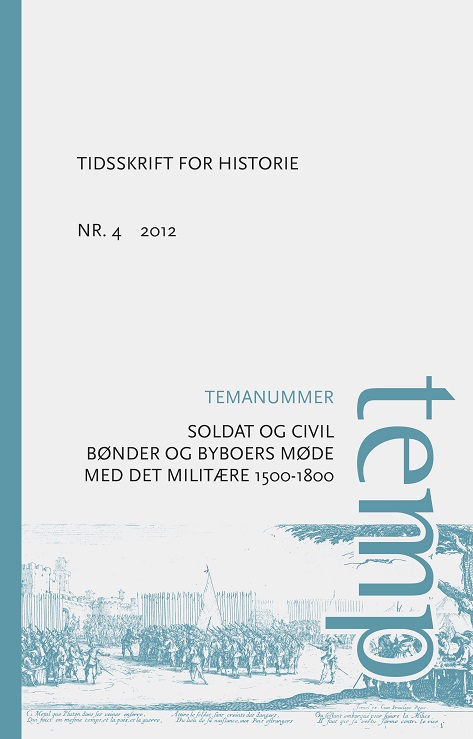SOLDATER OG CIVILE I DANSKE KRIGSARTIKLER FRA 1500- OG 1600-TALLET
Nøgleord:
soldat og civil, danske krigsartikler, 1500- og 1600-tallet, Christian 4., tidlig moderneResumé
ABSTRACT
Soldiers and Civilians in Danish Articles of War (16th-17th centuries)
This article investigates regulations concerning soldiers’ treatment of civilians in Danish Articles of War (16th-17th centuries). These Articles prohibited soldiers from assaulting certain civilian groups in enemy territory and regulated other activities affecting civilians, such as looting and destruction. It is shown that the legislators behind the 16th century Articles of War consciously reduced the group of protected civilians. A similar development can (hitherto unknown to international research) be ascertained in contemporary German, Dutch, and Swedish Articles of War; Danish Articles of War sometimes imitated, but never mechanically duplicated, such foreign Articles of War. This pan-European diminishing of the protection of civilians was, it is suggested, caused by the intensification of interstate rivalry in the early phases of the military revolution. Furthermore, the article shows that the Danish 17th century Articles of War augmented the group of protected civilians and limited the soldiers’ access to legitimate looting. The inspiration came from recent Dutch military reforms and the Kontributionssystem of the Thirty Years’ War. This ‘rehumanization’ culminated with the Danish Articles of War of 1683, and a similar process can be traced in German and Swedish 17th century Articles of War. It may be explained by state-building and deconfessionalization
of the European state system.
Downloads
Publiceret
Citation/Eksport
Nummer
Sektion
Licens
Copyright temp - tidsskrift for historie og forfatterne.
Artikler publiceret i Temp må citeres, downloades og videresendes for ikke-kommerciel brug, under forudsætning af normal akademisk reference til forfatter(e) samt tidsskrift, årgang, nummer og sider. Artiklerne må kun genudgives med eksplicit tilladelse fra forfatter(e) og tidsskriftet.





